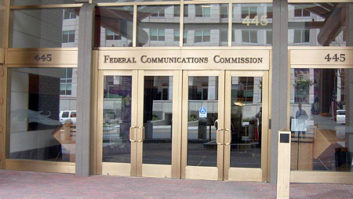The Federal Communications Commission will now focus on what went right and what went wrong as the nation’s television stations transitioned to digital on June 12. “Our mission is not yet accomplished,” said new Chairman Julius Genachowski on the agency’s open monthly meeting Thursday. “Consumers and broadcasters need an FCC that is still focused on the transition.”
Three items, including the rule change to allow AMs to operate on FM translators, had been voted on earlier in the week to clear the meeting agenda for updates on the DTV transition and the development of a policy to rollout broadband.
Bob Ratcliffe, acting chief of the Media Bureau, said during the meeting some 970 full-power television stations are now broadcasting in digital only. The call centers have handled over a million calls from consumers seeking help so far. The FCC has sent engineers to select markets to help troubleshoot both interference and reception issues, he said. Solutions may involve new antennas, new translators or temporarily allowing some stations to operate at higher power, he said, because the DTV signals of some stations are having trouble penetrating buildings. The FCC is granting some stations, like WJZ(TV) in Baltimore, waivers to operate at higher power while they wait for new antennas.
Chairman Genachowski and Commissioners Michael Copps and Robert McDowell also heard an update on plans to coordinate a national broadband plan policy. Blair Levin, who was chief of staff under former Chairman Reed Hundt, has returned to the agency to help coordinate that effort.
The group working on that effort has beta launched Web site broadband.gov to make the development process more transparent and make it easier for the commission to receive public input on the effort, Levin said. The group hopes to have information ready in September on the state of broadband deployment, both here and in other countries. The final policy plan is due to Congress Feb. 17, 2010.
All three commissioners called the broadband rollout even more transformative than the 1996 Telecommunications Act in terms of its effect on the nation’s economy. Genachowski called for an aggressive game plan, saying there must be a strategy to make sure regular Americans can afford broadband. He also cautioned that “we can unlock the power of spectrum,” however, “the reality is we are slipping. Other countries have faster connections for lower prices.”
During the session, the first public meeting he has chaired since reporting to work this week at the Portals, Genachowski said this was also the first open monthly FCC meeting he’s attended since 1997, during the Reed Hundt era.







